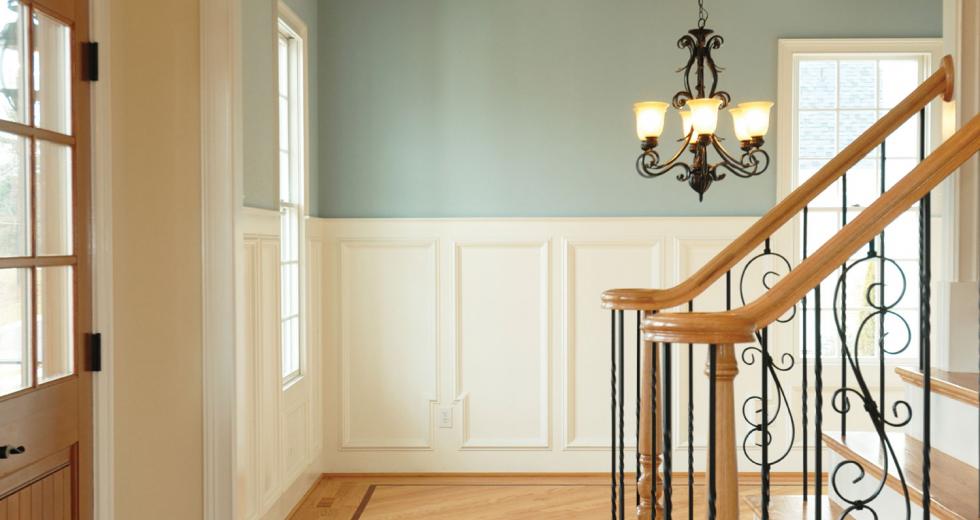Brian Collins is a 26-year-old director of accounts at Sacramento-based mobile applications marketing firm Appency. He makes what he calls “decent money,” is putting lots of it into a 401(k) and has an eye on his financial future. And, like most people his age, he’s decided that buying a house is not part of the plan. Not tying himself to real estate means he can stay nimble, and while in a different era he would probably be house hunting, now he says he’s not sure he wants one at all.
Collins still remembers the day in January 2009 when, with a new president about to be sworn in, he realized the world had changed. The economy was shedding thousands of jobs, and home prices were in free fall. It hit him that his generation wouldn’t be able to count on secure paychecks, instead working for less money than did older cohorts with similar education and skills. He and his peers would have to undertake more unpaid internships, travel light and relocate when opportunities availed themselves.
More conservative with money than their elders, many millennials — the generation now in its early 20s to early 30s — are putting off buying homes until they’re on solid financial footing. That could take a while, but their caution may serve them well. Young professionals need to stay focused on long-term financial and career goals, and that doesn’t need to include buying a house, according to some financial planning experts.
The housing crash cut into the number of people of all ages buying and living in purchased homes in the Capital Region. The latest Census figures show that today 59 percent of the population owns a home, down from 63 percent in 2005. The homeownership rate for those ages 25 to 34 dove even further, dropping from 44 percent to 35 percent over the same time.
Current economic conditions keep the number of millennial homeowners low. Cameron Hess, who owns two apartment complexes and is president of the Rental Housing Association of Sacramento Valley, is fielding more rental applications from young adult couples — a demographic normally looking to buy. They have had a harder time finding jobs, have less in savings, have more college loan debt and are pursuing more education to improve their job prospects, he says. Census data bears that out; the unemployment rate for 25- to 34-year-olds rose from 9 percent in 2005 to 13 percent last year.
Nationwide, young adults’ attitudes have shifted, too. A MacArthur Foundation survey last spring found that a large majority of people under 40 do want to own a home one day, but the appeal of renting is growing, even among those who already own. In fact, 61 percent of homeowners ages 18 to 39 say renting has become more appealing than owning.
Financial advisor Marc Bacsafra of Fountainhead Wealth in Sacramento, who specializes in working with young professionals, says many of his millennial clients don’t see buying a house as a priority. Advisor Anita Fong-chao of Commonwealth Financial Network puts it differently. Her millennial clients still want to buy; they’re just putting it off longer. They saw what the housing collapse did to their parents and contemporaries, so they’re doing what they can to avoid the same fate.
The real estate crash disabused most people of the notion that a home purchase equates to financial success. Alan Moore of Montana-based Serenity Financial Consulting, a millennial who specializes in advising his peers, says his clients are balancing several key financial goals, including building up an emergency fund, paying off student loans, starting a retirement fund and saving for a child’s education. Once he talks them through what will make them happiest long term, “buying a house tends to fall toward the bottom of that list,” he says.
Personal finance experts say the emergency fund should be at or near the top. For dual-income households, that means three months of savings. For single people, it’s six months, says advisor Debbie Grose of Lighthouse Financial Planning in Folsom.
Paying off student loans should stay a high priority, too. It usually doesn’t make sense to make a down payment on a house while managing significant student loan debt, says Moore. Those who put buying a house ahead of paying off student debt are essentially borrowing at a high interest rate (most federal student loans are at about 7 percent) to buy property at a lower rate, which no advisor would recommend, he argues.
So how do today’s first-time buyers choose between a home purchase and a retirement fund? Personal finance experts are loath to say which investment does better in the long run. Too many assumptions have to go into the calculation (mortgage rate, the rate of appreciation in the local real estate market, the ability to qualify for a mortgage interest deduction). Still, Fong-chao advises her millennial clients to make retirement savings a priority — 10 percent of the paycheck if possible.
There are also non-financial issues to weigh. Homeownership doesn’t make sense for those seeking to stay mobile for job or educational opportunities. If the property appreciates in a short period, sales transaction costs will eat into profits, Grose says. With many millennials seeking work in urban, densely populated areas, first-time homebuyers may be forced to purchase far from their jobs. Moore cites research indicating that, while homeownership doesn’t increase happiness, a long commute can lower it.
With so many moving parts and uncertain outcomes in the housing game, young people — or anyone, for that matter — looking to buy would be wise to first purchase a few hours with a financial planner.
The National Association of Personal Financial Advisors, Garrett Planning Network and the Certified Financial Planner Board provide online search tools to help identify nearby resources.
“There’s huge value in talking to an objective third party,” Moore says. He should know. He and his wife are considering buying a house, and they’re hiring a planner to talk them through the choice. “I have the same emotions that other people do,” he says. “I need someone who can say, ‘Are you sure this makes sense?’”
Recommended For You
Bad Reasons to Buy
Home-ownership isn't for everyone
For all the tales of woe during the real estate downturn, many new homeowners see their purchase as a good move. Debbie Grose, a financial advisor at Lighthouse Financial Planning in Folsom, helped 32-year-old talent acquisition manager Pranav Damle and his wife walk through their decision to buy a 3-bedroom, 2-bath house in Folsom last year.

Investment Property
The return of 100-percent financing
Remember the wild days of the real estate boom when you could buy a house with nothing down? You still can. Well, maybe you can’t, but a very select group of wealthy buyers can.



